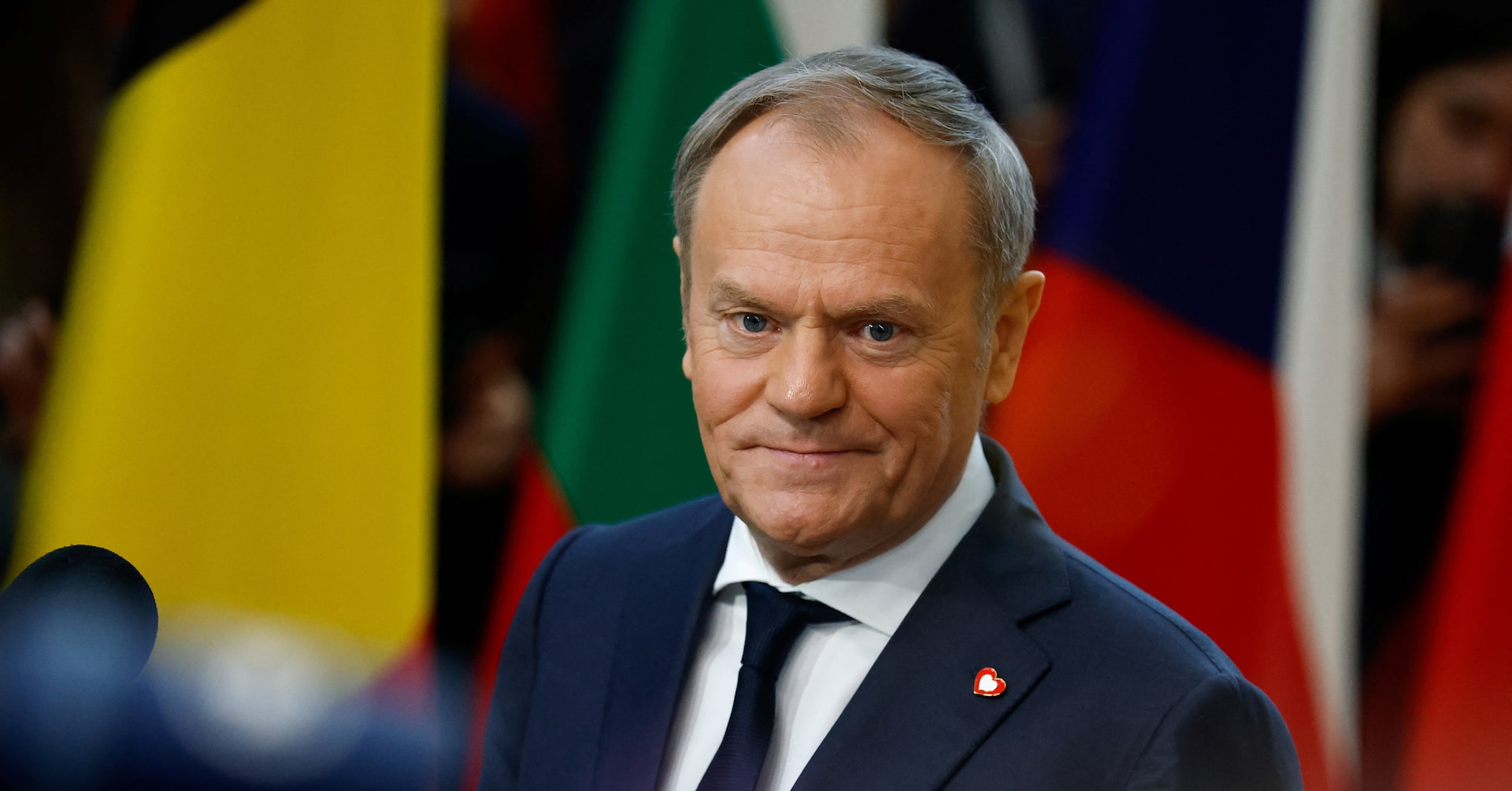Nuclear Boom: Polish Firms Set to Rake in $14 Billion from Groundbreaking Atomic Project
Companies
2025-04-15 08:27:24Content

In a bold move to strengthen Poland's economic sovereignty, Prime Minister Donald Tusk has announced an ambitious plan for the country's first nuclear power plant. The project is set to deliver a substantial economic boost, with Polish companies poised to secure approximately 53 billion zlotys (equivalent to $14.05 billion) in contracts.
Tusk's vision of "repolonisation" aims to prioritize domestic businesses and ensure that a significant portion of the nuclear plant's construction value remains within the Polish economy. This strategic approach not only supports local industry but also reinforces national economic independence.
The nuclear power plant project represents a major milestone for Poland, promising to diversify the country's energy infrastructure and reduce reliance on traditional fossil fuels. By maximizing local company involvement, the government hopes to create jobs, stimulate technological innovation, and build long-term economic resilience.
As Poland takes this significant step towards sustainable energy development, the nuclear plant initiative stands as a testament to the country's commitment to economic growth and technological advancement.
Poland's Nuclear Ambitions: A Strategic Economic Transformation Unveiled
In a bold move that signals a significant shift in Poland's economic landscape, Prime Minister Donald Tusk has launched an ambitious initiative to revolutionize the nation's energy infrastructure and economic strategy. The government's latest announcement promises to reshape the country's industrial future through a comprehensive approach to national development and strategic investment.Powering Poland's Economic Renaissance: A Nuclear-Driven Transformation
The Strategic Vision of Nuclear Infrastructure
Poland stands at a critical juncture in its economic evolution, with the nuclear energy project representing far more than a mere infrastructure development. The proposed nuclear power plant is a multifaceted strategic initiative that intertwines energy security, economic revitalization, and national technological advancement. By committing to a substantial investment of 53 billion zlotys, the government is signaling a profound commitment to modernizing Poland's industrial capabilities and reducing dependency on traditional energy sources. The nuclear project emerges as a cornerstone of Poland's long-term economic strategy, promising to create thousands of high-skilled jobs, attract international technological expertise, and position the country as a forward-thinking player in the European energy landscape. This ambitious undertaking represents a calculated risk that could potentially transform Poland's economic trajectory for decades to come.Economic Repolonisation: A Comprehensive National Strategy
Prime Minister Tusk's call for "repolonisation" extends beyond the nuclear energy sector, representing a holistic approach to national economic development. This strategy aims to increase domestic ownership and control across critical industrial sectors, ensuring that economic benefits are retained within the Polish economy. The nuclear project serves as a flagship initiative in this broader economic transformation. The financial commitment of 53 billion zlotys represents a significant investment in national infrastructure, with potential ripple effects across multiple economic domains. Local companies stand to benefit substantially, gaining opportunities for technological development, job creation, and enhanced industrial capabilities. This approach demonstrates a nuanced understanding of economic development that goes beyond simple infrastructure construction.Technological Innovation and Economic Sovereignty
The nuclear power plant project represents more than an energy infrastructure initiative; it is a statement of technological sovereignty and economic ambition. By investing in cutting-edge nuclear technology, Poland positions itself as a progressive nation capable of competing on the global technological stage. The project requires sophisticated engineering, advanced technological capabilities, and significant human capital investment. Local companies will play a crucial role in this transformation, developing expertise and capabilities that extend far beyond the immediate nuclear project. The initiative creates a multiplier effect, potentially spurring innovation across related technological and industrial sectors. This approach ensures that the economic benefits are not merely financial but also include long-term technological and human capital development.Geopolitical and Economic Implications
The nuclear energy project carries profound geopolitical significance, particularly in the context of European energy dynamics. By reducing dependency on external energy sources, Poland enhances its strategic autonomy and economic resilience. The project represents a forward-looking approach to national security and economic planning, demonstrating a sophisticated understanding of the interconnected nature of energy, technology, and economic development. The substantial investment of 14.05 billion dollars equivalent underscores the government's commitment to transformative economic strategies. This is not merely an infrastructure project but a comprehensive national development initiative that promises to reshape Poland's economic landscape for generations to come.RELATED NEWS
Companies

Inside Rentec Direct: Why This Oregon Tech Firm Is Winning the Workplace Culture Game
2025-03-05 14:00:00
Companies

Trailer Equipment Market Shakes Up: Midwest Companies Joins Forces with Patriot Sales & Rental
2025-04-22 19:10:58
Companies

Insider-Led Asian Titans: Explosive 112% Earnings Surge Defies Market Expectations
2025-03-25 22:07:58





